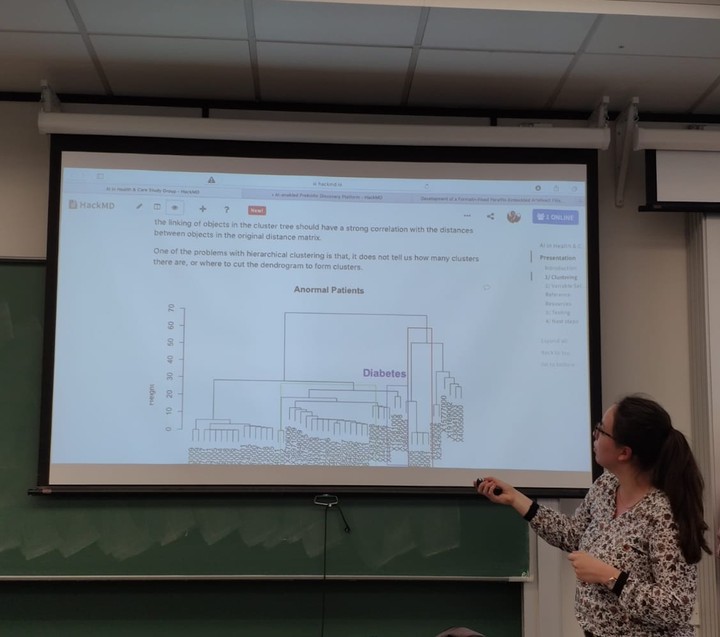 Hierarchical clustering for clustering phenotypes related to a rare disease
Hierarchical clustering for clustering phenotypes related to a rare disease
Abstract
According to the EU, a rare disease affects fewer than 5 in 10,000 people. Collectively, they affect a large portion of the population and cause a significant burden on our healthcare systems. There are an estimated 3.5 million rare disease patients in the UK (that’s more than all cancer patients in the UK) On average, these patients wait 5.6 years for a diagnosis and are referred to 7.3 different doctors. The problem is that rare diseases are difficult to diagnose. They are numerous and varied, making it difficult for doctors to recognise them on demand. There have been several initiatives to organise medical knowledge around rare disease like Orphanet. To improve diagnosis, Genome England has allocated half of the 100,000 genome project to tackle rare disease [3]. Mendelian has spent several years creating tools for clinicians, geneticists and healthcare systems who manage rare diseases. Our clinical search engine has had much success with doctors seeking the latest relevant knowledge for their troublesome diagnoses. We have ongoing studies showing how our technology can improve rare disease screening and clinical decision making. In academia, there has been machine learning research on predicting rare disease in electronic health records [4,5]. These studies have shown that machine learning methods are able to pre- dict diagnoses that expert clinicians would make. Unfortunately, it is often infeasible to find large enough datasets to sufficiently train classifiers for diseases with such a low prevalence. In practice, it would require access to data held by several institutions that is very sensitive in nature.